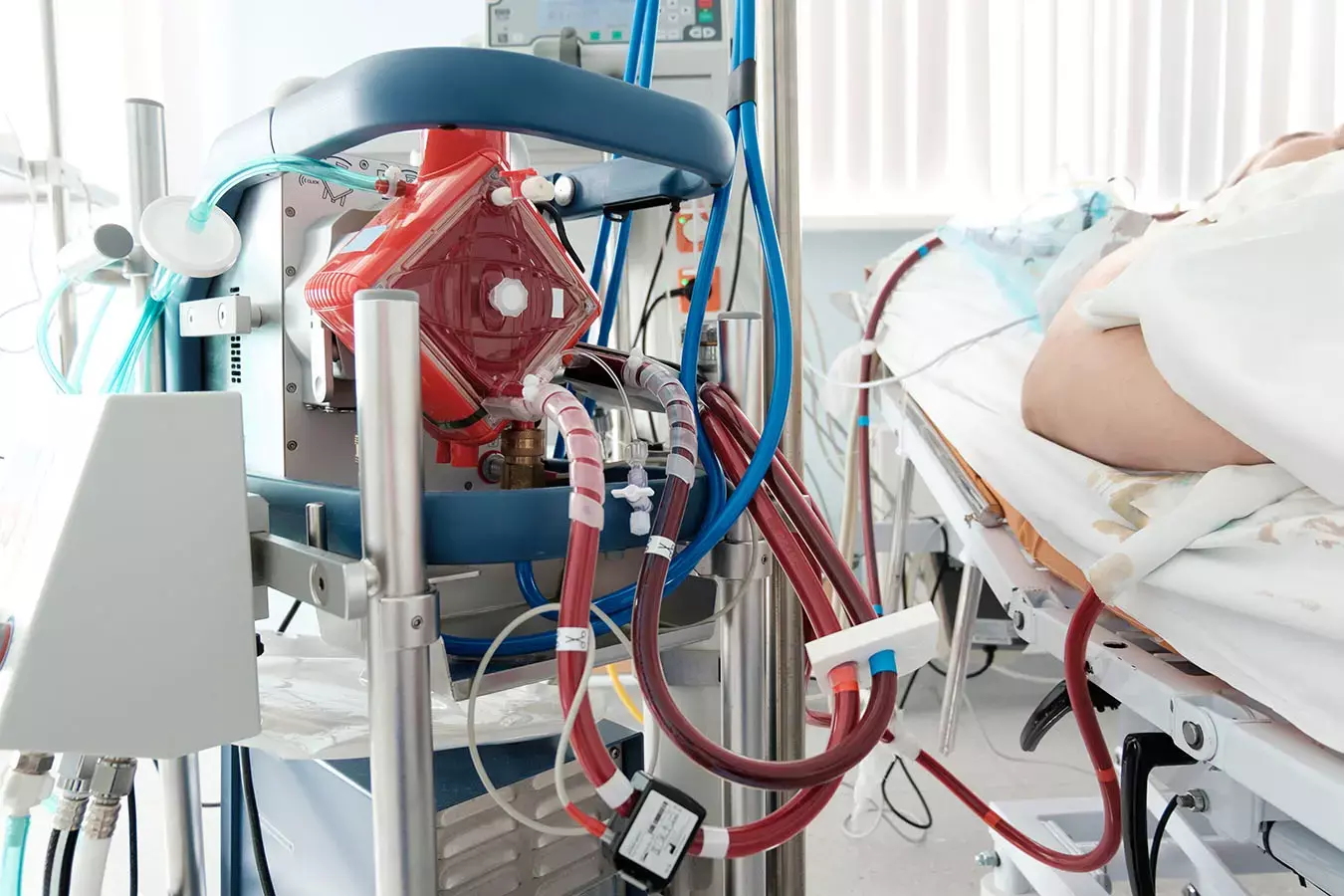- Home
- Medical news & Guidelines
- Anesthesiology
- Cardiology and CTVS
- Critical Care
- Dentistry
- Dermatology
- Diabetes and Endocrinology
- ENT
- Gastroenterology
- Medicine
- Nephrology
- Neurology
- Obstretics-Gynaecology
- Oncology
- Ophthalmology
- Orthopaedics
- Pediatrics-Neonatology
- Psychiatry
- Pulmonology
- Radiology
- Surgery
- Urology
- Laboratory Medicine
- Diet
- Nursing
- Paramedical
- Physiotherapy
- Health news
- Fact Check
- Bone Health Fact Check
- Brain Health Fact Check
- Cancer Related Fact Check
- Child Care Fact Check
- Dental and oral health fact check
- Diabetes and metabolic health fact check
- Diet and Nutrition Fact Check
- Eye and ENT Care Fact Check
- Fitness fact check
- Gut health fact check
- Heart health fact check
- Kidney health fact check
- Medical education fact check
- Men's health fact check
- Respiratory fact check
- Skin and hair care fact check
- Vaccine and Immunization fact check
- Women's health fact check
- AYUSH
- State News
- Andaman and Nicobar Islands
- Andhra Pradesh
- Arunachal Pradesh
- Assam
- Bihar
- Chandigarh
- Chattisgarh
- Dadra and Nagar Haveli
- Daman and Diu
- Delhi
- Goa
- Gujarat
- Haryana
- Himachal Pradesh
- Jammu & Kashmir
- Jharkhand
- Karnataka
- Kerala
- Ladakh
- Lakshadweep
- Madhya Pradesh
- Maharashtra
- Manipur
- Meghalaya
- Mizoram
- Nagaland
- Odisha
- Puducherry
- Punjab
- Rajasthan
- Sikkim
- Tamil Nadu
- Telangana
- Tripura
- Uttar Pradesh
- Uttrakhand
- West Bengal
- Medical Education
- Industry
ECMO use linked to increased risk of mental health and social issues: JAMA

A new study published in the Journal of American Medical Association suggests that receiving extracorporeal membrane oxygenation (ECMO) in comparison to intensive care unit (ICU) hospitalization without ECMO was substantially linked to a slightly higher likelihood of receiving a new mental health diagnosis or a diagnosis of a social issue after discharge among adult survivors of critical illness.
In critically sick patients, extracorporeal membrane oxygenation (ECMO) is utilized to provide temporary cardiorespiratory assistance; however, less is known about the long-term psychological effects of ECMO in survivors. In order to ascertain the relationship between ECMO survivability and post-discharge mental health diagnoses amongst adult survivors of critical illness, Shannon M. Fernando and colleagues undertook this study.
From April 1, 2010, to March 31, 2020, this population-based retrospective cohort research was conducted in Ontario, Canada. Adult patients with ECMO who were hospitalized to the intensive care unit (ICU) and survived until hospital discharge were included. Following discharge, the main result was a new mental health diagnosis, which included social issues, mood disorders, anxiety disorders, posttraumatic stress disorder, schizophrenia, and other psychotic diseases. There were 8 secondary outcomes, which included the prevalence of drug abuse, intentional self-harm, suicide deaths, and separate elements of the composite primary outcome. Using overlap propensity score-weighted cause-specific proportional hazard models, patients were compared to ICU survivors who did not receive ECMO.
The key findings of this study are:
1. The median follow-up period was 730 days for the 642 survivors who had ECMO whereas it was 1390 days for the 3820 matched ICU survivors who did not.
2. The prevalence of new mental health disorders was 22.1 per 100 person-years among survivors who had ECMO and 14.5 per 100 person-years among ICU survivors who did not get ECMO.
3. After propensity weighting, it was shown that ECMO survivability was strongly linked to a higher probability of receiving a new mental health diagnosis.
4. In terms of substance abuse or willful self-harm, there were no appreciable differences between survivors who received ECMO and ICU survivors who did not.
5. The overall number of suicide deaths in the cohort was less than 5.
Reference:
Fernando, S. M., Scott, M., Talarico, R., Fan, E., McIsaac, D. I., Sood, M. M., Myran, D. T., Herridge, M. S., Needham, D. M., Ferguson, N. D., Combes, A., … Kyeremanteng, K. (2022). Association of Extracorporeal Membrane Oxygenation With New Mental Health Diagnoses in Adult Survivors of Critical Illness. In JAMA. American Medical Association (AMA). https://doi.org/10.1001/jama.2022.17714
Neuroscience Masters graduate
Jacinthlyn Sylvia, a Neuroscience Master's graduate from Chennai has worked extensively in deciphering the neurobiology of cognition and motor control in aging. She also has spread-out exposure to Neurosurgery from her Bachelor’s. She is currently involved in active Neuro-Oncology research. She is an upcoming neuroscientist with a fiery passion for writing. Her news cover at Medical Dialogues feature recent discoveries and updates from the healthcare and biomedical research fields. She can be reached at editorial@medicaldialogues.in
Dr Kamal Kant Kohli-MBBS, DTCD- a chest specialist with more than 30 years of practice and a flair for writing clinical articles, Dr Kamal Kant Kohli joined Medical Dialogues as a Chief Editor of Medical News. Besides writing articles, as an editor, he proofreads and verifies all the medical content published on Medical Dialogues including those coming from journals, studies,medical conferences,guidelines etc. Email: drkohli@medicaldialogues.in. Contact no. 011-43720751


